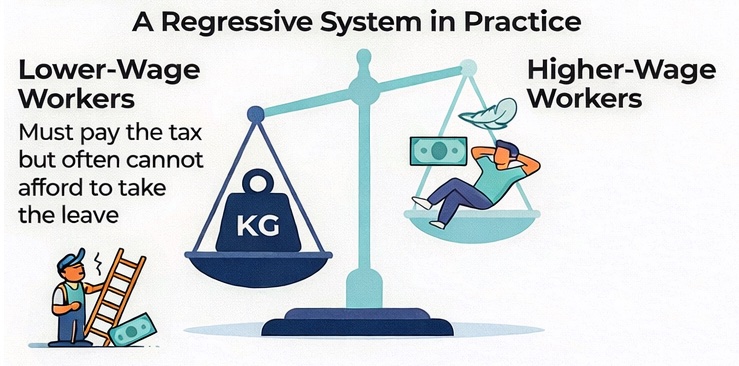As more and more public workers exercise their new Janus right to quit paying their government union for representation they do not want, labor friendly lawmakers in the legislature are doing their best to staunch the financial bleeding of the unions that helped elect them.
A package of bills that would extend collective bargaining rights to even more government workers is sailing through the legislative process. HB 1333 and HB 1299 would give judicial assistants and assistant attorneys general the right to unionize and bargain for wages and working conditions. Before moving along, let us pause for a moment to marvel at the absurdity of claiming that anyone with a law degree, much less one who is employed as an assistant attorney general (AAG) for the state, needs the help and protection of a union. One would think that if any individual is capable of negotiating with their employer, it would be an AAG.
Both bills have passed the House Labor & Workplace Standards Committee, and the Senate companion bill to HB 1299, SB 5297, has passed the Senate Labor & Commerce Committee. In the Senate hearing the Chief of Staff of the Attorney General’s Office testified that his boss, state Attorney General Bob Ferguson, supports the bill. At one point Senator Steve Conway, a former union leader, asked the AG’s Chief of Staff why collective bargaining rights have not already been extended to AAGs and expressed surprise they have not. AG Ferguson’s Chief of Staff replied he did not know the answer to that question.
Perhaps he didn’t want to say the reason AG Ferguson is suddenly so keen to allow his approximately 600 AAGs to unionize is because the bill is not really about helping AAGs, but more about helping the union that would collect union dues from those workers. The timing is suspicious—the first legislative session since the U.S. Supreme Court freed public workers from compulsory union dues and fees in the landmark Janus case and suddenly AG Ferguson is declaring it past time that AAGs be allowed to collectively bargain?
AG Ferguson has made no secret of his opposition to, and seeming disdain for, that decision from the nation’s highest court.
Before the Janus ruling, AG Ferguson teamed with Governor Inslee to author an editorial warning that a ruling in favor of worker choice would “threaten the financial viability of unions.” The day the Janus ruling was released, AG Ferguson again teamed with Governor Inslee to issue a joint press statement railing against the Court’s decision as “the newest attempt to undermine and destroy public sector unions.”
A third bill, HB 1452, that would allow workers in the legislative branch to collectively bargain was heard in the House Committee, and it’s probably safe to assume it will also pass.
The end game of all three bills is to increase the number of public workers who are represented by one of the state’s powerful government unions. More workers covered by collective bargaining translates into more money for the union.
WPC has long opposed the state law passed in 2002 that allowed collective bargaining for state employees because it fundamentally shifted the balance of power within our state government. What used to be the purview of the legislature—oversight of the state’s payroll budget (which represents a significant portion of the state’s operating costs) and appropriations process—was transferred solely to the governor.
The role of the legislature is now reduced to accepting or rejecting the entire public employee contract negotiated between the governor and government unions. The legislature cannot offer amendments or re-open negotiations if they have a concern over part of the agreement. They can only reject the entire agreement.
Worse, the negotiations between the governor and government unions are done in secret, effectively shutting lawmakers out of a large area of state policymaking.
Lawmakers and the general public are not allowed to attend negotiating sessions; they are only permitted to read and vote on the final binding agreement. They are not allowed to know the starting and ending positions of each side, what was discussed, the amount of public funds requested or what concessions each side made to reach the agreement. No hearings or public comment are permitted. The process is not covered by TVW, as legislative hearings are, and it is not subject to the state’s otherwise strong open meetings and public records laws until after an agreement has been reached.
Needless to say, further diminishing the legislature’s purview over (and consolidating the governor’s authority over more of) the state’s operating budget by bringing more state workers into the union fold is nowhere on WPC’s list of policy recommendations.
However, the trio of bills (HB 1333, HB 1299/SB 5297, HB 1452) could at least be improved with amendments that would ensure every worker receives clear information informing them of their Janus right to refuse to pay their new union. That alone would go a long ways toward proving these bills aren’t just political payback to government unions.






